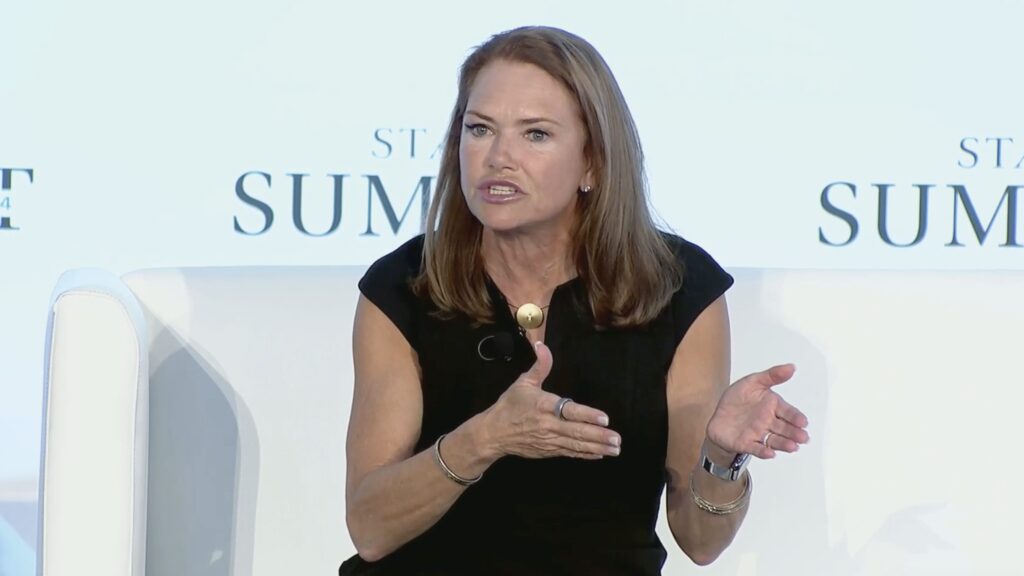Former Verily executive Amy Abernethy outlined her plan to streamline clinical research on Thursday, revealing the first projects that her company, Highlander Health, will fund.
Abernethy, who previously served as the No. 2 official at the Food and Drug Administration, has spent a lot of time thinking about how to leverage data to improve our health, telling STAT in September that the idea for Highlander Health dates back to 2009.
advertisement
Her resolve to make research more efficient has grown over the years as the cost of clinical trials has skyrocketed. On Thursday, at the 2024 STAT Summit, Abernethy recalled a presentation at last year’s J.P. Morgan by BeiGene CEO John Oyler, who noted that the company spent about $150,000 per clinical trial patient in 2010. By 2023, that cost increased to around $300,000 per patient.
“We often think about the cost of recruitment, and estimate in a cancer trial it’s about $30,000, but when you think about the total cost of activities that happen in a clinical trial, it’s voluminous,” Abernethy said.
Abernethy and fellow former Verily executive Brad Hirsch co-founded Highlander Health with plans to invest in others trying to more effectively gather clinical data in innovative ways. She wants researchers to be able to gather information on medical products from existing hospital records, medical bills, and data infrastructure — a model that Abernethy presented to the audience as a graph resembling a snail.
advertisement
“We’ve been moving to the figure on the right, which looks like a more continuous evaluation of a medical product across its life cycle,” Abernethy said.
The first projects Highlander will fund are at Duke-Margolis Institute for Health Policy, Baylor Scott & White Health, and Memorial Sloan Kettering Cancer Center. The company is working with Lyda Hill Philanthropies, a charitable group, to support research at the three institutions. Duke is analyzing policies in clinical research; Memorial Sloan Kettering is looking to streamline its research operations; and Baylor Scott is working on including basic medical data in clinical trial registries.
“These are philanthropic grants to organizations to really develop clinician-led learning laboratories to test ideas that we’ve been talking about across the health care and life sciences industry for a long time,” Abernethy said.
The hope, Abernethy said, is that streamlining evidence generation in general will make clinical trials shorter and bring costs down, allowing companies to deliver new treatments to patients faster.
“When it takes 15 to 17 years to get new discoveries to patients who need them, that’s just too long,” Abernethy said.
Abernethy’s name is often frequently mentioned in discussions about potential candidates for FDA commissioner. When asked if she would take the job, she said serving in government is incredibly impactful but reiterated that she was focused on her current company.
“Personally, I’m working very hard on Highlander Health,” Abernethy said. “You can see the snail and the problem that I’m trying to solve and I’m here to help.”

